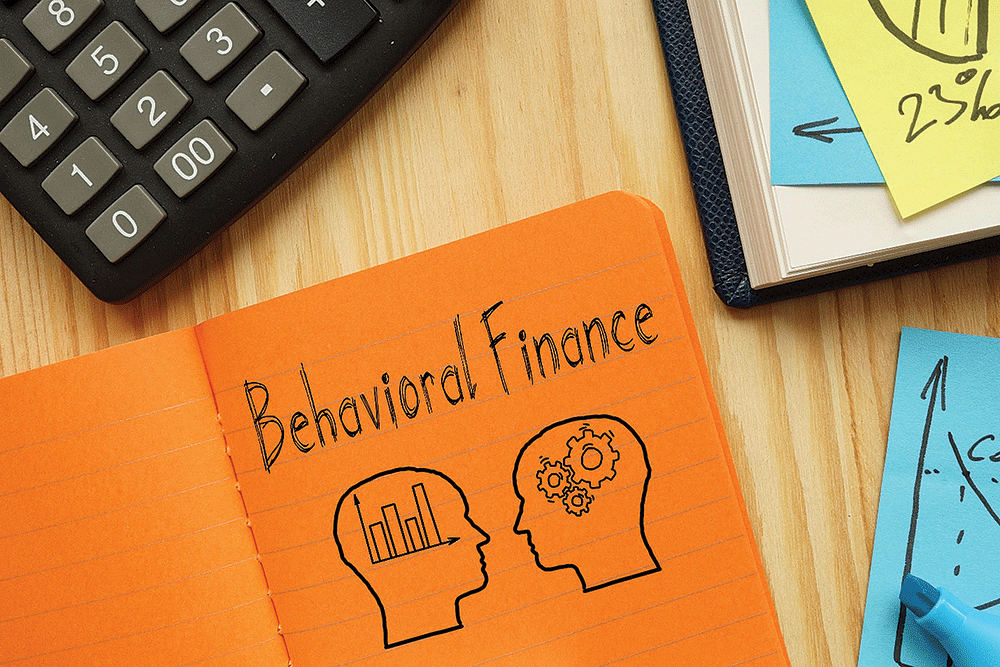
The study of the influence of psychology on the mental capacity of traders or financial analysts is called Behavioral Finance. This understanding has a glaring effect on the financial markets. It is based on the premises that traders are not always rational, have limits to their self-control, and are influenced by their own biases. This article is an attempt to decode the various biases in this branch of study and also suggests ways to overcome them for a successful career in the financial markets.
Overconfidence Bias
It is a tendency to hold back a false and misleading valuation of our skills, talent or intellect. Based on the assumptions that we are better than we actually are, the danger is that one is more prone to making mistakes in trading. It stems from an illusion of knowledge and an illusion of control.Self-Attribution Bias
It is based on the classic tendency to attribute good outcomes to our skill and bad outcomes to luck. We choose how to attribute the cause of an outcome based on what reflects us the best. When everything is going according to plan it’s due to our skill and when things don’t go according to plan, we blame luck or other external factors not in our control.Hindsight Bias
It is the misconception that one always knew the outcome and they possessed special insight or a god-gifted ability to predict the outcome. During the 2008 global financial crisis or the dotcom bubble of the late 1990s, many individuals state that the signs were there and everyone knew that the problems were around the corner. However, before the aforementioned crisis only few analysts and professionals predicted the scenario months or even years ago.Confirmation Bias
It is a tendency of market participants to follow the information that confirms their assumptions and completely ignore information that opposes it. This bias tends to limit our ability to make purely rational investment decisions.Narrative Fallacy
It falls under the assumption that we love stories and we let our preference for a good story cloud facts and our ability to make rational decisions. In simple words, we may be drawn towards a less desirable outcome simply because it has a better story. Avoid the gravity of the narrative fallacy and focus on the facts.Representative Bias
It occurs when the two similar events confuse traders regarding the probability of an outcome-believing that two similar events are more closely correlated than they actually are. In financial markets, traders normally assume that good companies make good investments or forecasting future results based on historical performance.Framing Bias
Framing bias occurs when the traders make decisions based on the way the information is presented as opposed to just the facts. In other words, the same facts presented in two different manners can lead to people making different judgments or decisions. Depending on how it is presented, traders may react to a particular opportunity differently.Anchoring Bias
It occurs when traders rely on pre-existing information or the first information they find when making decisions. If someone were to ask you, where do you think gold’s price will be in a month, how would you approach the decoding? Generally, you would most likely find out the price today and then make an assumption about where it’s headed in a month. In essence, we are starting with a price today and we are building our value based on that information.Loss Aversion
It is a tendency where traders are so fearful of losses that they focus on trying to avoid a loss more than on generating gains. The more you experience losses, the more likely they are to become prone to loss aversion. Research shows that traders feel the pain of a loss more than twice as strongly as they feel the enjoyment of making a profit.Herding Mentality
It refers to a trader’s tendency to follow and copy what other traders are doing. Rather than doing their own independent analysis, they are largely influenced by others’ emotions and instinct. In the dotcom bubble of the 1990s, many fintech companies did not have financially sound business models, but many traders bought into them because they were only following a trend in the markets. In effect, you are only following the recommendations or actions of others.Overcoming Biases
Here are few strategies to overcome biases. #1 Focus on the Process There are generally two approaches to making decisions. The first is reflexive which tends to go with your gut-feeling and which is effortless and automatic. The second one is reflective which is based on logical reasoning and requires effort and engagement. Rather than relying on reflexive that makes us more prone to deceptive biases, establish reflective methods to protect from any errors. #2 Prepare, Plan and Pre-Commit It teaches us to trade by preparing, planning and making sure that we pre-commit to our earlier assumptions.Closing Thoughts
When we enter into the world of financial markets and trading, we are bound to be influenced by the aforementioned biases among others. However, keeping a rational state of mind and also training your conscious and sub-conscious mind will yield appropriate results in the journey of self-discovery and self-realisation. READ ALSO:
Published Date: September 30, 2022, 12:00 am
Post Comment
E-Magazine
RELATED Commodity Perspective





